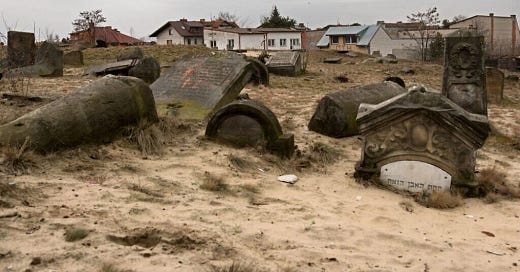Do we experience all joy or all sadness, or can we have both at the same time? Can there be multiple layers to our happiness and sorrow?
Of course.
We can easily become distracted by the many layers of our feelings and categorize them as all this or all that. When we are honest with ourselves, we acknowledge experiencing these feelings simultaneously.
We also see this in our emotions surrounding our connection to Hashem (God) and our spiritual lives.
And it was, on the eighth day, Moses called Aaron and his sons, and the elders of Israel. (Lev. 9:1)
This week's Torah portion, Shemini, contains an inspiring lesson based on the first word, Vayehi, “And it was,” taught by the 18th-century Moroccan Jewish sage, Rabbi Chayim ben Moshe ibn Attar, also known as the Ohr HaChayim.
At this point in the Torah, Moshe is delegating to his brother Aaron the service in the Mishkan (Tabernacle); on the surface, this brings pure joy. It allows Aaron to lead the people in offerings and thanksgiving.
Yet, our sages tell us that Moshe, at some level, desired to be the priestly brother; he wished to be the one making the offerings. However, God appointed his brother for this duty.
So, while filled with joy, Moshe could also experience sadness. Would that be acceptable for a tzaddik like Moshe?
When sadness arises from our inability to serve God in all the ways we desire, from our inability to do everything we wish for others, or from our inability to help, learn, or pray enough, that sadness is cherished. It is not a flaw but a profoundly beautiful revelation of our interconnectedness with our Creator.
I was thinking about this as we observed Yom Hashoah yesterday.
Yom HaShoah is a day of profound sadness and pain when we take a moment to reflect. It is a day designated by Israel's Knesset to commemorate the more than 6 million Jews who were murdered during the Holocaust.
However, it did not prevent me from praying, attending shul, keeping kosher, checking in with my mom and father-in-law, and donating to a worthy charity in memory of those in my family who were killed, all while living a proud Jewish life.
For while there is no balm to heal the wounds of the Shoah, and while it remains beyond comprehension, it doesn't deter me from being a spiritual, joyful, and dedicated Jew.
My sadness and anger about the Shoah, which I have studied intensely but did not live through, cannot serve as an excuse to live a selfish life, or for that matter, to negate the covenant that I have with Hashem and my ancestors.
There are many layers.
My blessings for you, and please bless me back, are that we can serve Hashem in joy and sadness and be in touch with our feelings, letting them guide us to serve Hashem and humanity humbly and better.



